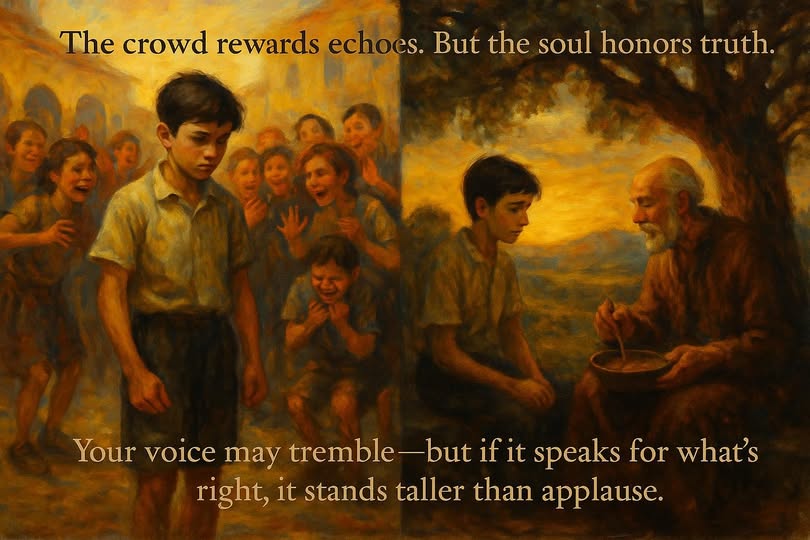
The fig tree was quiet that afternoon, but the village square was not.
A crowd had gathered by the school steps. Laughter echoed—sharp and cold. Emil stood at the edge, his hands clenched, heart thumping. In the center stood Amin, a shy boy with stuttering speech, trying to explain something while a few classmates mimicked his stammer.
It had started with a joke. Then the joke turned into a chant. Then the chant became a spectacle.
Emil didn’t join in. But he didn’t stop it either.
Someone nudged him. “Come on, Emil. You always have something clever to say!”
He froze. Every eye on him. His silence felt louder than the laughter.
Later that evening, Emil sat with his grandfather under the fig tree, unusually quiet. His grandfather handed him a bowl of lentil stew, then looked gently at the boy.
“You didn’t laugh with them,” he said.
“No,” Emil replied. “But I didn’t stop them either. I just… stood there.”
His grandfather stirred the stew with slow circles.
“There’s a strange thing about crowds,” he said. “They turn people into mirrors—each one reflecting what the others expect to see. But your soul was not made to be a mirror. It was made to be a lamp.”
“But everyone would’ve laughed at me too,” Emil admitted.
“Perhaps,” the grandfather said. “But sometimes the smallest lamp can scatter the deepest shadows.”
He pointed to the fig tree.
“When a tree is young, it sways with every wind. But a rooted one holds its shape—even when birds sit on it, even when storms pass. You’re learning, Emil. And today, your roots deepened a little more—not by standing with the crowd, but by feeling the weight of not speaking when you could have.”
Emil looked down. “Next time, I’ll speak.”
His grandfather smiled. “That’s how leaders are born—not from applause, but from the quiet promise they make to their own hearts.”

